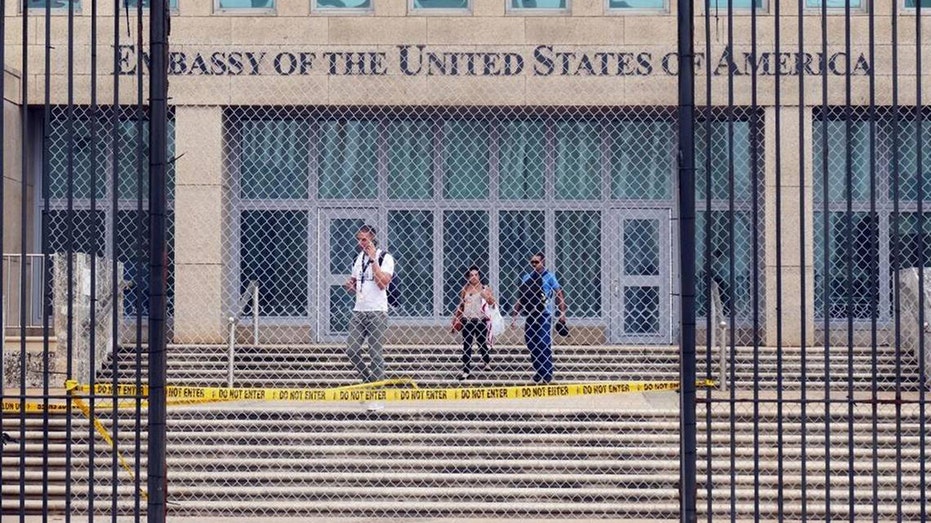A long-term study of Havana Syndrome patients was shut down after a National Institute of Health (NIH) internal review board found the mishandling of medical data and participants who reported being pressured to join the research. The study had until now not found evidence linking the participants to the same symptoms and brain injuries. The internal investigation that halted the study was prompted by complaints from the participants about unethical practices.
This comes after the intelligence community released an interim report last year concluding a foreign adversary is “very unlikely” to be behind the symptoms hundreds of U.S. intelligence officers are experiencing, despite qualifying for U.S. government funded treatment of their brain injuries.
ROCKETS LAUNCHED AT US FORCES STATIONED AT AIN AL-ASAD AIRBASE IN IRAQ
“The NIH investigation found that regulatory and NIH policy requirements for informed consent were not met due to coercion, although not on the part of NIH researchers,” an NIH spokesperson said in a statement to Fox News.
A former CIA officer, who goes by Adam to protect his identity, was not shocked that the study was shut down.
“The way the study was conducted, at best, was dishonest and, at worst, wades into the criminal side of the scale,” Adam said.
Adam is Havana Syndrome’s Patient Zero because he was the first to experience the severe sensory phenomena that hundreds of other U.S. government workers have experienced while stationed overseas in places like Havana and Moscow, even China. Adam described pressure to the brain that led to vertigo, tinnitus and cognitive impairment.
Active-duty service members, spies, FBI agents, diplomats and even children and pets have experienced this debilitating sensation that patients believe is caused by a pulsed energy weapon. 334 Americans have qualified to get treatment for Havana Syndrome in specialized military health facilities, according to a study released by the U.S. government accountability office earlier this year.
Adam, who was first attacked in December 2016 in his bedroom in Havana described hearing a loud sound penetrating his room. “Kind of like someone was taking a pencil and bouncing it off your eardrum… Eventually I started blacking out,” Adam said.
HOW ARTIFICIAL INTELLIGENCE IS RESHAPING MODERN WARFARE
Patients, like Adam, who participated in the NIH study raised concerns the CIA was including patients who didn’t really qualify as Havana Syndrome patients, watering down the data being analyzed by NIH researchers. Meanwhile, also pressuring those who needed treatment at Walter Reed to participate in the NIH study in order to get treatment at Walter Reed.
“It became pretty clear quite quickly that something was amiss and how it was being handled and how patients were being filtered… the CIA dictated who would go. NIH often complained to us behind the scenes that the CIA was not providing adequate, matched control groups, and they flooded in a whole litany of people that likely weren’t connected or had other medical issues that really muddied the water,” Adam said, accusing the NIH of working with the CIA.
The CIA is cooperating.
CLICK HERE TO GET THE FOX NEWS APP
“We cannot comment on whether any CIA officers participated in the study. However, we take any claim of coercion, or perceived coercion, extremely seriously and fully cooperated with NIH’s review of this matter, and have offered access to any information requested,” a CIA official told Fox News in a statement noting that the “CIA Inspector General has been made aware of the NIH findings and prior related allegations.”
Havana Syndrome victims now want to pressure the Journal of the American Medical Association (JAMA) to retract the two articles published last spring using early data from the NIH study that concluded there were no significant MRI-detectable evidence of brain injury among the group of participants compared with a group of matched control participants.
